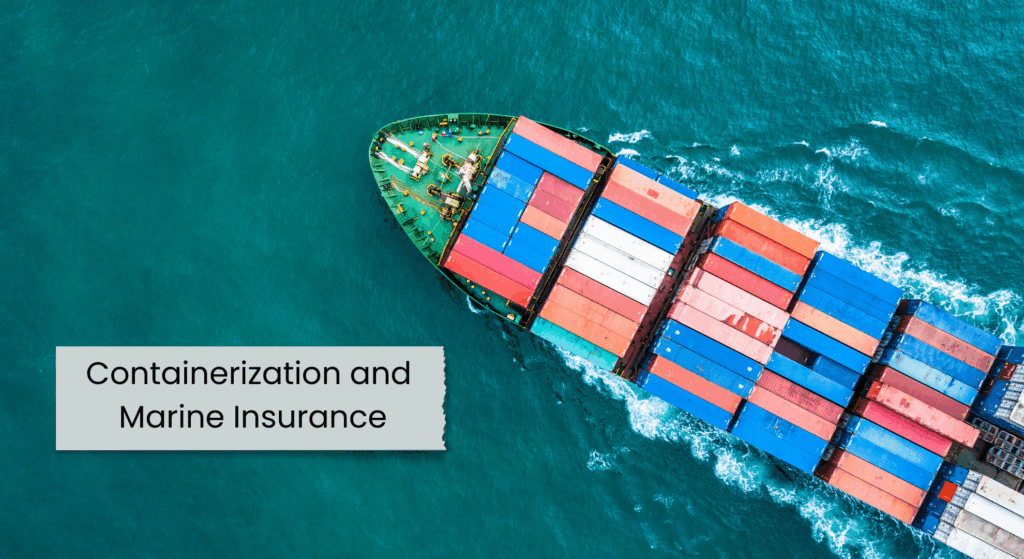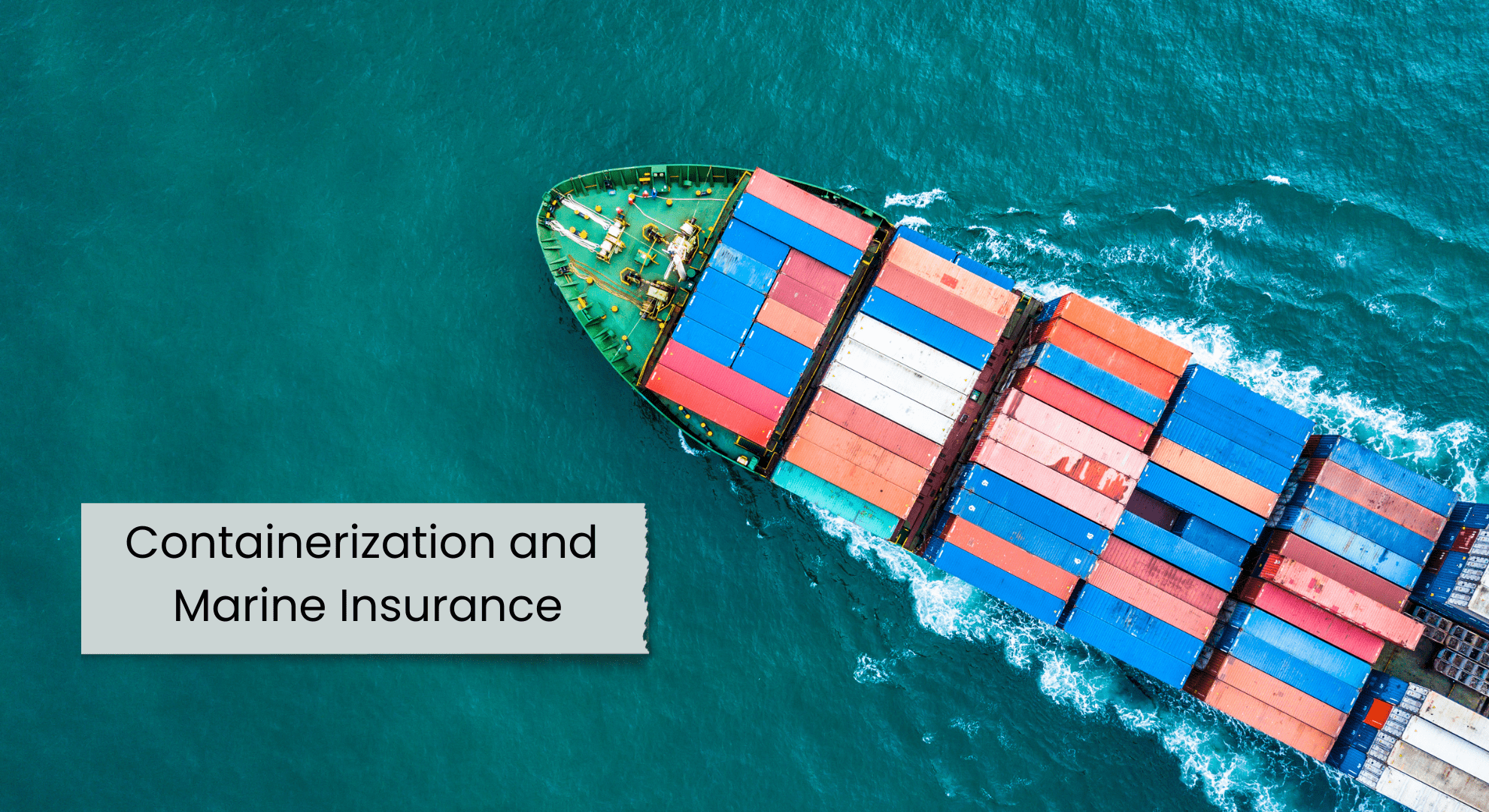
Summary
The rise of containerization has transformed global shipping, making it faster, more efficient, and cost-effective. But while containerization simplified logistics, it also introduced unique risks such as misdeclaration, temperature-sensitive cargo damage, theft, and transit delays. Marine insurance policies today are evolving to address these complexities. This blog explores the challenges containerization brings and how marine insurance adapts to safeguard businesses.
Table of Contents
- What Is Containerization in Shipping?
- Why Containerized Cargo Needs Specialized Insurance
- Key Risks in Containerized Shipping
- How Marine Insurance Adapts to Containerization
- Best Practices for Exporters and Importers
- FAQs
What Is Containerization in Shipping?
Containerization refers to the use of standardized containers for transporting goods across multiple modes of transport—sea, rail, and road. It has revolutionized trade by enabling:
- Faster loading and unloading
- Reduced handling costs
- Global standardization in shipping logistics
Today, over 90% of global cargo moves in containers, making marine insurance coverage in this segment critically important.
Why Containerized Cargo Needs Specialized Insurance
While containerization reduces some risks (like breakage during manual handling), it introduces complex, large-scale risks that traditional marine insurance models were not designed to handle. For example, one damaged container on a vessel can hold cargo belonging to multiple shippers, raising liability and claim disputes.
Key Risks in Containerized Shipping
1. Misdeclaration of Cargo
Shippers may misdeclare hazardous or high-value goods to save costs. This can lead to fires, explosions, or regulatory penalties. Marine insurance policies often exclude intentional misdeclaration, leaving honest businesses vulnerable.
2. Temperature and Humidity Damage
Refrigerated (reefer) containers carry perishable items like food and pharmaceuticals. Malfunction in cooling systems can spoil entire shipments, raising claim disputes over responsibility between carriers and insurers.
3. Container Losses at Sea
Thousands of containers are lost at sea every year due to rough weather or improper lashing. This creates total cargo loss for multiple exporters at once, amplifying the need for comprehensive cargo insurance.
4. Theft and Pilferage
Despite container security seals, theft at ports or during inland transport is a recurring challenge. Marine insurance policies now address theft, but coverage varies by region and port risk.
5. Port Delays and Supply Chain Disruptions
Congestion, strikes, and geopolitical tensions often cause containers to remain stuck at transshipment hubs, raising storage costs and delivery risks. Delay-related claims can be tricky, as many policies exclude pure economic loss.
How Marine Insurance Adapts to Containerization
To meet modern challenges, marine insurance has evolved with:
- Container Clause Inclusions: Specific terms covering containerized cargo risks.
- Reefer Container Extensions: For temperature-sensitive goods.
- All-Risk Cargo Policies: Covering theft, pilferage, and accidental damage.
- Parametric Insurance: Emerging solutions using IoT and GPS sensors for real-time monitoring and automated claim triggers.
Best Practices for Exporters and Importers
- Always declare cargo accurately to avoid claim rejections.
- Use reliable shipping lines and track container conditions.
- Opt for “all risks” cargo insurance rather than limited cover.
- Add extensions for reefer cargo, war, and strike risks if applicable.
- Review Incoterms to clarify whether the buyer or seller must insure the cargo.
FAQs
Q1. Does marine insurance automatically cover containerized cargo?
Yes, but specialized extensions may be needed for reefer or high-risk cargo.
Q2. What happens if a container is lost at sea?
If insured, the policy compensates for the cargo’s value, subject to terms and conditions.
Q3. Is delay in delivery covered under marine insurance?
Most standard policies exclude pure delay claims, unless linked to physical damage.
Q4. Can multiple shippers in the same container file separate claims?
Yes, each cargo owner can claim under their respective marine insurance policies.






